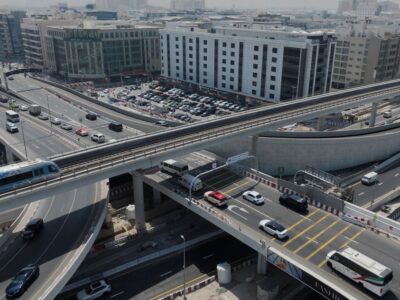The GCC hospitality industry is expected to see a compounded annual growth rate (CAGR) of 7.5 percent between 2023 and 2028, an industry report said.
The hospitality sector’s revenue in the region is expected to reach approximately $48.1 billion by 2028, fuelled by the unified efforts of the GCC countries in prioritising hospitality as a key element of their long-term diversification strategies, the report by Alpen Capital said.
Steady economic growth, increasing tourist arrivals and a multitude of mega MICE and sporting events to be hosted in the region will support the projected growth, it said.
The growth in the hospitality sector revenue of individual GCC countries is expected to range from a CAGR of 6.9 percent to 11 percent during the five-year period until 2028.
Saudi Arabia is projected to grow in line with the GCC average of 7.5 percent, supported by numerous government-led initiatives as part of its Vision 2030, whereas the UAE is expected to grow at a CAGR of 6.9 percent, backed by the government’s focus on modernising infrastructure and easing tourist visa rules, the report said.
Smaller markets are expected to witness high growth rates during the forecast period, with Qatar at 11 percent, Kuwait at 10.5 percent and Oman and Bahrain at 9 percent each CAGR, it said.
The three key operating metrics – occupancy rate, average daily rate (ADR) and revenue per available room (RevPAR) – are also expected to improve over the next five years.
The occupancy rate in the region is forecasted to grow from 64.6 percent in 2023 to 69.3 percent in 2028, while the ADR is expected to increase at a CAGR of 1.9 percent during the same period to $182.7 from $166.4.
RevPAR is forecasted to grow at a CAGR of 3.3 percent from $107.5 in 2023 to $126.6 in 2028.
The report said the GCC is solidifying its global tourism footprint through successful hosting of major MICE, cultural and sporting events.
“Anticipated to attract millions of tourists, these events are poised to bolster the growth of the hospitality industry,” it said.
Besides, the region has implemented several liberalised measures to further boost tourist inflow, including initiatives such as GCC unified visas, Dubai’s five-year multiple-entry visa and Saudi Arabia’s instant e-visa options.
The report also flagged some of the challenges facing the hospitality sector in the region, mainly stemming from global economic uncertainties and geopolitical conflicts.
“Concerns about inflation and monetary policies may dampen consumer confidence, leading to reduced discretionary spending on international travel.
“Furthermore, a shortage of skilled workers presents a significant hurdle to the sector’s growth trajectory, hindering its ability to recruit and retain trained professionals for various roles,” the report by the UAE-based investment banking advisory firm said.








